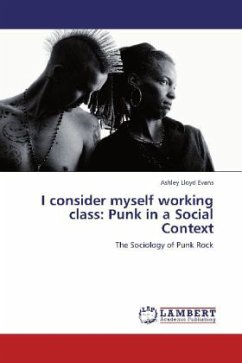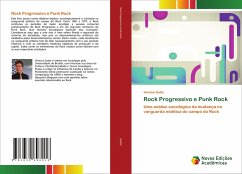Punk rock was a phenomenon that started in the mid 1970s and is still with us today. More than just a musical genre,it developed in to a full sub-culture. A subculture that had its own fashion, literature,art,social values and moral codes. Punk was a direct reaction to a hegemonic post-war society that had left its working class youth feeling disillusioned. It is argued that the philosophy of punk is just as relevant today, with record youth unemployment and opportunities denied to working class young people. This book discovers the origins of Punk as a social movement,and the impact it had on society. It also looks at what certain academics have written on the subject which include articles on feminism, racism and political debate,as well as issues about sexuality, drug abuse and violence. The book also features real people who were actually there at the time, in an attempt to get a picture of what it was really like to be part of the movement,which is in stark contrast to how the media represented it. A must for students studying sociology with an emphasis on youth culture, moral panics, folk-devils and marginalization
Bitte wählen Sie Ihr Anliegen aus.
Rechnungen
Retourenschein anfordern
Bestellstatus
Storno








